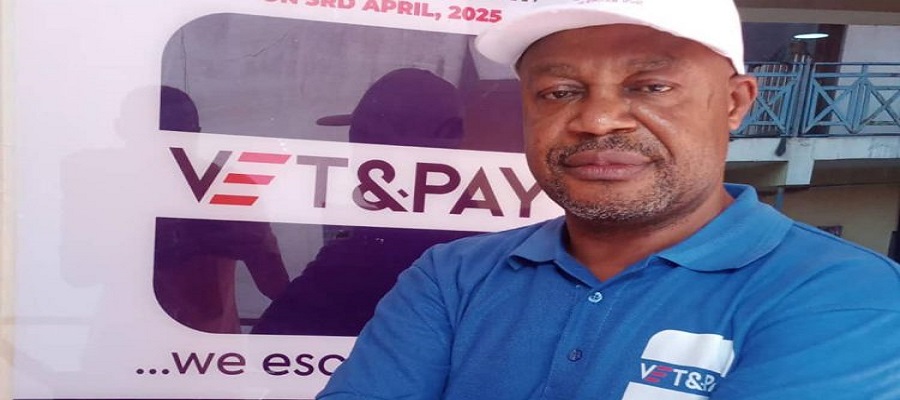E-Financial
SEC to Introduce Capital Market Studies in Primary through Tertiary Institutions

Securities and Exchange Commission (SEC) said s it is working with other stakeholders in the market to introduce capital market studies in primary, secondary and tertiary institutions in the country.

Efe Ebelo, head of Corporate Communication, SEC, Abuja, in a statement on Sunday said that the move would boost the level and quality of financial literacy among the citizens.
She said that the delivery of the plan would change the face of financial literacy in the country.
According to her, the plan is also in line with the World Investor Week to be commemorated by the commission on October 26, 2020.
She noted that all exchanges in the country would be expected to ‘ring the bell for financial literacy’ to commemorate the week.
“Additionally, the commission, working with the Financial Literacy Technical Committee will host a webinar titled ‘Mobilising Savings and Investments.’ ”
Ebelo said that the week-long event would be aimed at raising awareness about the importance of investors’ education and protection.
She said that the awareness was geared toward engendering the financial and overall wellbeing of individuals particularly in view of the effects of the COVID-19.
“Nigeria, represented by the Securities and Exchange Commission and other stakeholders, will join the rest of the world to commemorate the fourth annual World Investor Week under the auspices of the International Organisation of Securities Commissions.
“The WIW key messages for 2020 will highlight the basics of investing, assessing the impact of fees when choosing an investment and understanding that all investments entail risks.
“’The WIW will also stress messages regarding mobilising savings and investment and will also deliver a key message on financial literacy,” she said.
E-Financial
AfDB Mobilizes $2.2Bn to Support Nigeria’s Agriculture

African Development Bank (AfDB) is mobilising $2.2 billion to develop agricultural processing zones in 28 states in Nigeria to boost food security and create jobs, Akinwumi Adesina, the bank’s president said on Tuesday.

Adesina was speaking in northern Kaduna state while launching the first phase of the initiative that is targeting five states. This phase is being bankrolled by more than $500 million that was first announced in 2022.
The AfDB head said the funding needs for the second phase would be presented to the AfDB board shortly for approval.
“We have been able, I would like to say, to mobilize $2.2 billion of investment interest to support the second phase across Nigeria,” he said during the ceremony in Kaduna.
Adesina said besides the AfDB, Arab Bank for Economic Development, Africa Import-Export Bank, agri-investment fintech Sahara Farms and French and U.S. institutions were among institutions that would help raise the $2.2 billion.
The agro-processing zones aim to create facilities to process agricultural produce closer to farmers, which will reduce post-harvest losses and strengthen value chains from farms to market.
Last year, Nigeria spent $4.7 billion importing food, the AfDB said, a trend authorities also hope to reverse with more investment in the farming sector.
E-Financial
Court Delays $81.5Bn Tax Evasion Case against Binance

Nigerian authorities have postponed legal proceedings against Binance as tensions persist over the crypto exchange’s role in the country’s economic troubles.

According to a recent report, a court in Nigeria has pushed back the tax evasion case to April 30.
The delay gives the Federal Inland Revenue Service (FIRS) more time to respond to Binance’s request to cancel a previous court order that allowed legal documents to be served to the company via email.
The FIRS initially filed the lawsuit in February, claiming Binance owes the country a whopping $2 billion in taxes along with an additional $79.5 billion in economic damages.
Related court filings reveal that the agency is pushing for the exchange to pay corporate income taxes for the years 2022 and 2023.
On top of that, FIRS has demanded a 10% annual penalty on the unpaid taxes and nearly 27% interest on the outstanding amounts.
The agency has argued that Binance’s level of business activity qualifies as a “significant economic presence” in Nigeria, thereby making it liable for taxation under local law.
Binance, however, has challenged the court’s earlier decision to allow the order to be served via email.
According to Chukwuka Ikwuazom, Binance’s attorney, the order should be annulled, as Binance is registered in the Cayman Islands, has no physical office in Nigeria, and was served without proper court authorisation for cross-border delivery.
Since expanding its services to Nigeria on October 24, 2019, with the addition of Naira, Binance’s journey in the West African country has been marred with regulatory pushback.
Things came to a head in February 2024 when two Binance executives, Tigran Gambaryan, a US citizen, and Nadeem Anjarwalla, a British-Kenyan national, were unexpectedly detained by Nigerian authorities.
The executives had travelled to Abuja for what was supposed to be a series of meetings with government officials to address concerns around Binance’s local operations.
Instead, they were arrested and charged with tax evasion and money laundering.
The situation took a dramatic turn when Anjarwalla escaped custody in March and fled the country, reportedly making his way to Kenya, where he remains at large.
Gambaryan, however, stayed behind bars for months.
As previously covered on Invezz, reports soon started to surface that Gambaryan was suffering from pneumonia, malaria, and a herniated spinal disc, all while allegedly being denied proper medical attention.
His detention caught the attention of US lawmakers, which even led Representative Rich McCormick to introduce a resolution in July 2024 that classified his arrest as a hostage situation.
By October, the Nigerian government dropped the money laundering charges against Gambaryan, leading to his release on October 23, 2024.
He returned to the US the same month, bringing an end to a nearly seven-month-long detention.
In between, Binance officially halted all naira-related services and exited the Nigerian market in March 2024.
E-Financial
TCL Launches ‘vetandpay’ to Combat Online Transaction Fraud

Tradewyse Concepts Limited (TCL), Nigeria-based technology solution provider has launched a product called “vetandpay” to address the issues of trust and fraud in online business transactions in the country.

Dr Kalu Ibe, founder and chief executive officer, Tradewyse Concepts Limited
Dr Kalu Ibe, founder and chief executive officer, Tradewyse Concepts Limited, stated that the software was proudly developed by a team of Nigerians.
Speaking at the product dedication ceremony in Abuja, Ibe explained that the app aims to reduce corruption by restoring trust and integrity. He added that it would inspire confidence in both business and the broader transactional environment in Nigeria.
“Today, I present vetandpay.ng, powered by Vetandpay Technologies Ltd, Africa’s foremost escrow company, a subsidiary of TCL,” Ibe said.
“What started as a spark two years ago is now shining brightly over Nigeria’s transactional space, bringing healing with its rays.”
He outlined the various escrow services offered, including auto purchase escrow, procurement escrow, service-based escrow, e-commerce escrow, and property escrow, with more services expected to be added.
Ibe emphasised that the service is available to Nigerians both at home and abroad, promising zero losses in all business transactions when using vetandpay.
Through its Corporate Social Responsibility (CSR) programme, TCL plans to initiate a comprehensive tech training programme for teenagers in Nigerian schools. Ibe highlighted that the initiative aims to equip young people with technological skills, preparing them to enter the digital economy and drive innovation.
Ntufam Ugbo, project director, commented that vetandpay is transforming the business landscape in Nigeria by building trust between buyers and sellers.
“What vetandpay does is act as a middleman between the buyer and the seller,” she said.
Mrs Rachel Samuel, head of Customer Service at vetandpay, described the platform as a secure payment solution designed to eliminate fraud in online transactions.
“Our basic goal is to address the issue of receiving something different from what was ordered,” she explained.
Referring to a report by the Federal Trade Commission, Samuel pointed out that consumers lost over 8.8 billion dollars to fraud in 2022, a 30 per cent increase from the previous year. She noted that with vetandpay, both parties to a business transaction could have peace of mind and zero losses.
She encouraged Nigerians to embrace the services provided by the platform by downloading the vetandpay app and using the technology to secure their transactions.
‘‘Today marks the beginning of a new era in secure online transactions. Whether you are a business owner, freelancer, or everyday buyer, vetandpay is here to protect your hard-earned money,” Samuel concluded.

 News2 days ago
News2 days agoAOT Issues Bench Warrant against Sanusi, Aero Contractors MD

 News2 days ago
News2 days agoUS Cancels Visas for All South Sudanese Passport Holders

 News2 days ago
News2 days agoMeningitis Outbreak Kills 151 in Nigeria – NCDC

 News2 days ago
News2 days agoSERAP Calls on Tinubu to Reject $1.08Bn Loan, Probe Missing Funds

 News2 days ago
News2 days agoAfrimash Launches USSD Code to Revolutionize Poultry Farming and Combat Counterfeit Farm Produce

 News1 day ago
News1 day agoFG to Invest in Cutting-edge Broadcast Technology

 General News2 days ago
General News2 days agoUniversity Don Seeks Ban of Smartphones, Social Media in Schools

 News1 day ago
News1 day agoHow KongaFM 103.7 Helped Cure My Insomnia Challenge

























